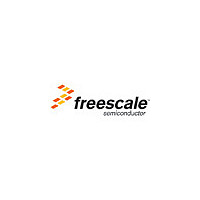MC68EN360AI25VL Freescale, MC68EN360AI25VL Datasheet - Page 123

MC68EN360AI25VL
Manufacturer Part Number
MC68EN360AI25VL
Description
Manufacturer
Freescale
Datasheet
1.MC68EN360AI25VL.pdf
(962 pages)
Specifications of MC68EN360AI25VL
Family Name
M68000
Device Core
ColdFire
Device Core Size
32b
Frequency (max)
25MHz
Instruction Set Architecture
RISC
Operating Supply Voltage (max)
3.3V
Operating Supply Voltage (min)
2.7V
Operating Temp Range
0C to 70C
Operating Temperature Classification
Commercial
Mounting
Surface Mount
Pin Count
240
Package Type
FQFP
Lead Free Status / RoHS Status
Compliant
Available stocks
Company
Part Number
Manufacturer
Quantity
Price
Company:
Part Number:
MC68EN360AI25VL
Manufacturer:
Freescale Semiconductor
Quantity:
10 000
Part Number:
MC68EN360AI25VL
Manufacturer:
FREESCALE
Quantity:
20 000
- Current page: 123 of 962
- Download datasheet (4Mb)
When the QUICC completes a bus cycle with HALT asserted, D31–D0 is placed in the high-
impedance state, and bus control signals are driven inactive (not high-impedance state); the
address, function code, size, and read/write signals remain in the same state. The halt oper-
ation has no effect on bus arbitration (refer to 4.6 Bus Arbitration). When bus arbitration
occurs while the QUICC is halted, the address and control signals are also placed in the
high-impedance state. Once bus mastership is returned to the QUICC, if HALT is still
asserted, the address, function code, size, and read/write signals are again driven to their
previous states. The QUICC does not service interrupt requests while it is halted.
In Figure 4-33, note that BR is not asserted until after the halt op-
eration is complete. If BR is asserted at the same time as HALT,
the user should note that the BG signal may not be asserted im-
mediately (as in other M68000 family devices) but rather after
the full operand transfer is complete. This difference in behavior
is due to the coherency rules imposed by the QUICC and other
IMB-based M68300 family members. Refer to 4.6 Bus Arbitra-
tion for more details. To override the coherency rules, a relin-
quish and retry cycle may be used.
In the MCR of the SIM60, if the show cycles enable bits SHEN1-
SHEN0 = 1x to enable show cycles mode, and HALT is asserted
externally, the following behavior is possible. It is possible that
the QUICC may not show the last bus cycle externally, if that bus
cycle happens to be an internal-to-internal bus cycle. This is due
to a pipelining characteristic of the QUICC coupled with the
HALT signal being asserted late into an internal-to-external bus
cycle. Note that show cycles mode is not the normal configura-
tion for the QUICC.
Freescale Semiconductor, Inc.
For More Information On This Product,
MC68360 USER’S MANUAL
Go to: www.freescale.com
NOTES
Bus Operation
Related parts for MC68EN360AI25VL
Image
Part Number
Description
Manufacturer
Datasheet
Request
R

Part Number:
Description:
TOWER ELEVATOR BOARDS HARDWARE
Manufacturer:
Freescale Semiconductor
Datasheet:

Part Number:
Description:
TOWER SERIAL I/O HARDWARE
Manufacturer:
Freescale Semiconductor
Datasheet:

Part Number:
Description:
LCD MODULE FOR TWR SYSTEM
Manufacturer:
Freescale Semiconductor
Datasheet:

Part Number:
Description:
DAUGHTER LCD WVGA I.MX51
Manufacturer:
Freescale Semiconductor
Datasheet:

Part Number:
Description:
TOWER SYSTEM BOARD MPC5125
Manufacturer:
Freescale Semiconductor
Datasheet:

Part Number:
Description:
KIT EVALUATION I.MX51
Manufacturer:
Freescale Semiconductor
Datasheet:

Part Number:
Description:
KIT DEVELOPMENT WINCE IMX25
Manufacturer:
Freescale Semiconductor
Datasheet:

Part Number:
Description:
TOWER SYSTEM KIT MPC5125
Manufacturer:
Freescale Semiconductor
Datasheet:

Part Number:
Description:
TOWER SYSTEM BOARD K40X256
Manufacturer:
Freescale Semiconductor
Datasheet:

Part Number:
Description:
TOWER SYSTEM KIT K40X256
Manufacturer:
Freescale Semiconductor
Datasheet:

Part Number:
Description:
Microcontrollers (MCU) MX28 PLATFORM DEV KIT
Manufacturer:
Freescale Semiconductor
Datasheet:

Part Number:
Description:
MCU, MPU & DSP Development Tools IAR KickStart Kit for Kinetis K60
Manufacturer:
Freescale Semiconductor
Datasheet:

Part Number:
Description:
24BIT HDMI MX535/08
Manufacturer:
Freescale Semiconductor
Datasheet:
Part Number:
Description:
Manufacturer:
Freescale Semiconductor, Inc
Datasheet:
Part Number:
Description:
Manufacturer:
Freescale Semiconductor, Inc
Datasheet:











